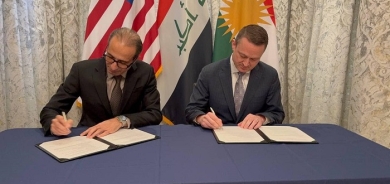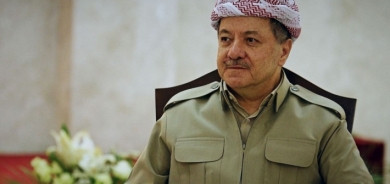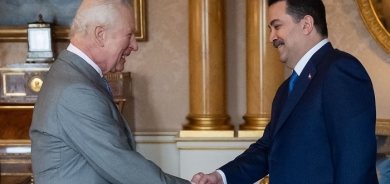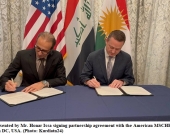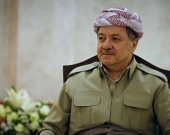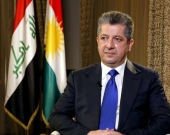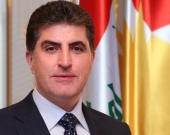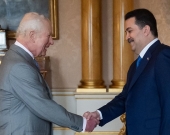Kurdish Female Contestant Sparks Identity Debate on Arab Talent Show

Introducing Parwaz Hussein, the contestant, as being from Iraq made very Kurds angry. They asked the jury board to introduce her origin as from ?Kurdistan?.
A singer from Iraq's Kurdistan region has made it to the semi-final of an Arab talent contest, igniting heated debates over Iraqi identity and politicizing the popular TV show.
A panel of judges praised 24-year-old Parwaz Hussein and she was voted through to the next round of "Arab Idol", in which aspiring popstars from Morocco to Bahrain compete for a recording contract.
Many Kurds have rallied behind Parwaz, who wore a pendant in the shape of "Greater Kurdistan" - the term used to describe the territory Kurds claim as their rightful homeland, which covers swathes of Syria, Turkey, Iran and Iraq.
"If before you were a singer, now you bear a great patriotic responsibility," one Facebook user called Kurdistani Kurdan wrote on Parwaz's page.
Numbering more than 25 million, the Kurds are often described as the world's largest ethnic group without an independent state and regard national borders as an historical injustice that has led to their systematic oppression.
In Iraq, the Kurds were the target of chemical attacks on the hand of the toppled Iraqi former president, Saddam Hussein, but now enjoy a large measure of self-rule in the north of the country, where they run their own administration and armed forces.
At her first audition, Parwaz, who speaks broken Arabic, was accompanied by a translator so she could communicate with the judges. She has sung in both Arabic and Kurdish.
Unlike two other Arab Iraqi contestants who were described as being from Iraq, Parwaz's origin was referred to as "Iraqi Kurdistan".
"I am against the country title that says Parwaz is from Kurdistan, because Kurdistan is an inseparable part of Iraq," said Ahlam, a popstar from the United Arab Emirates. "I want your introduction to say that you are from Iraq and not Kurdistan."
The comment provoked an angry response among Kurds, who said it was evidence of Arab racism towards them.
"Tell Ahlam we are not Arabs," said Ako Jaff on Parwaz's Facebook page.
Ahlam later apologized on her Facebook page, but many Kurds said they would not accept the gesture unless it was broadcast on television. Some Arab nationalists took umbrage at that.
The Kurdish Globe


